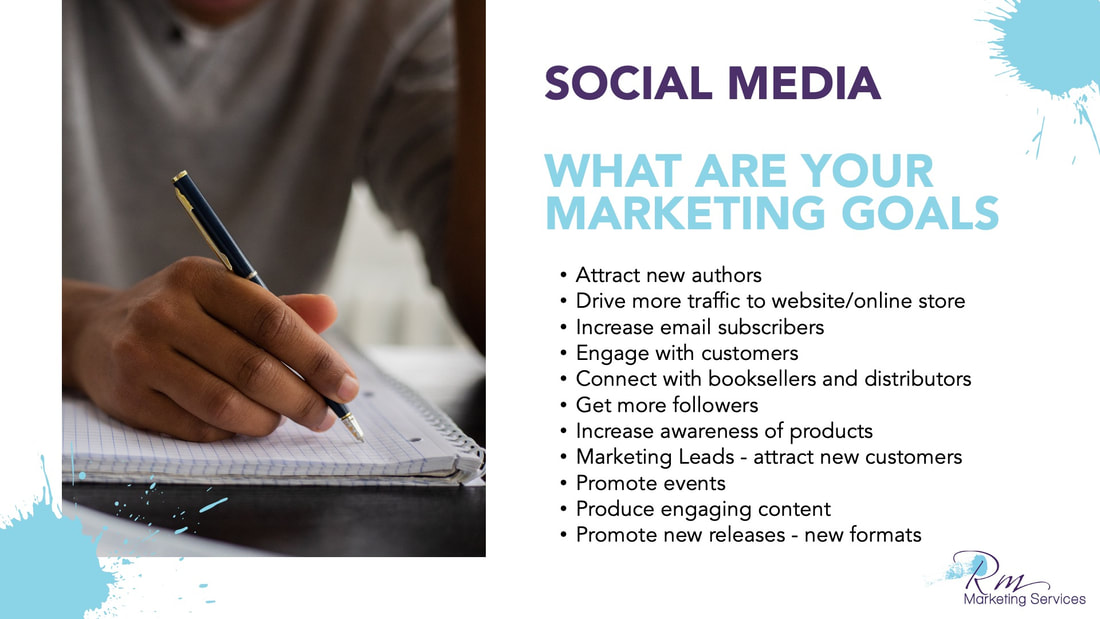|
We recently contributed this article to the Independent Publishing newsletter from our good friends at Books+Publishing. If you haven't subscribed to their newsletters, we highly recommend you do so now.
All the social media and marketing advice says if you are engaging with an audience—with consumers, with booksellers, with librarians and teachers—you’re going to need a social media strategy. Social media is about starting a discussion—about you, your product, your services. ‘Discussions’ do not increase sales—they create awareness. Your job is to enhance this awareness so you can develop a brand, build reader loyalty and have a sales strategy that makes it easy for someone to buy your book. That may be through bricks and mortar bookshops, online booksellers, special accounts or directly from your website. It should not be used solely as a sales strategy but linked to your overall sales and marketing plan for your books. Lesson one: start early One thing to keep in mind is that author and product awareness doesn’t happen overnight! You need to be thinking about your digital and social media strategy a long time before your book is published. As an industry consultant, there’s nothing more frustrating than getting a phone call or an email because someone has ‘written a book’ and they tell me the book has just come back from the printers, can I help with a website, promotions, publicity, getting them on the socials? They have published a book and no one can find them! They have no brand, no online presence, no followers, no readers, no SEO search results—zero digital footprint as an author. They are starting too late to build their author brand in a way that will maximise promotional and publicity opportunities. Don’t leave it to the last minute to develop a digital and social media action plan. Lesson two: define your goals So what is social media marketing? It is essentially a way of creating content in multiple formats then distributing that on an online platform designed to drive engagement, encourage discussion and share information for consumers. It builds virtual networks and communities. It’s a conversation. And if you’re an author, it will provide direct access to your readers and vice versa. Another thing to keep in mind is where social media is taking place. Statistics shows the number of smartphone users in the world is forecast to be 7.9 billion this year and of those 3.96 billion are on social media. (Which reminds me: you need to be thinking mobile for your website as well. Is it mobile–friendly? There are plenty of online services now that can help you with your website and have it integrate with social media. Wix, Weebly, Squarespace, Shopify and others can connect the dots for you. Websites aren’t expensive these days and you can contact industry professionals to help you get started.) While I think everyone needs to have a social media strategy, that doesn’t necessarily means that everyone will have one. As authors and publishers one of the best things you can do is define what your social media strategy looks like. What are your goals? What are the platforms that are right for you? How will you communicate in those channels? Discover the voice that works best in those you want to engage with—then work out the best way to create and schedule content across those platforms. Do you have a content plan going forward? How will you keep the engagement going? The best way to think about social media is to write down your goals. What do you want social media to do for you? Do you want to:
Lesson three: know your audience I read somewhere that unless you can answer the question ‘who is your audience’ then you’re wasting your time on social media! But now I’m going to hit you with the big question: who is your audience? This is really important for advertising on social media as you’ll need to identify your core audience, market to a custom build audience or a consider look-alike audience. So, who are your readers? What do they read? What podcasts do they listen to? What magazines do they read? What television do they watch? What sex are they? What age group? Where do they live? What keeps them up at night? What type of content are they craving? Do they stream content? Listen to ABC radio? How do they entertain themselves? Over time social media analytics will build a nice but general profile of your readers so you will be able to discover who they are and continue to build discussions around them. Knowing your audience will help with your digital marketing strategy including email marketing and website. If you can’t define your audience or some buyer personas, why did you write your book?
0 Comments
|
AuthorRachael McDiarmid has been in the Australasian book trade since 1990. Working in trade, academic and professional publishing as well as library supply and book distribution, she's worked with thousands of publishers, distributors, library vendors, and authors around the globe. She loves a belly laugh, strong coffee, wine, and good food. Venice is her favourite place in the world to visit but Sydney will always be home. She loves her office assistant Dash (also known as Dashie, Dashie Dog and the Little Shit). If you haven't already worked it out, she is known for her no bullshit approach. Archives
October 2023
Categories
All
|
Recommendations"Rachael is, quite simply, a book industry genius."
— Franscois McHardy, Former Managing Director, Simon & Schuster Australia "I thoroughly recommend her for her insights and intelligent analysis." — Terri-Ann White, Director, Upsell Publishing & Former Director, UWA Publishing |
for more recommendations please go to LinkedIn
|


 RSS Feed
RSS Feed